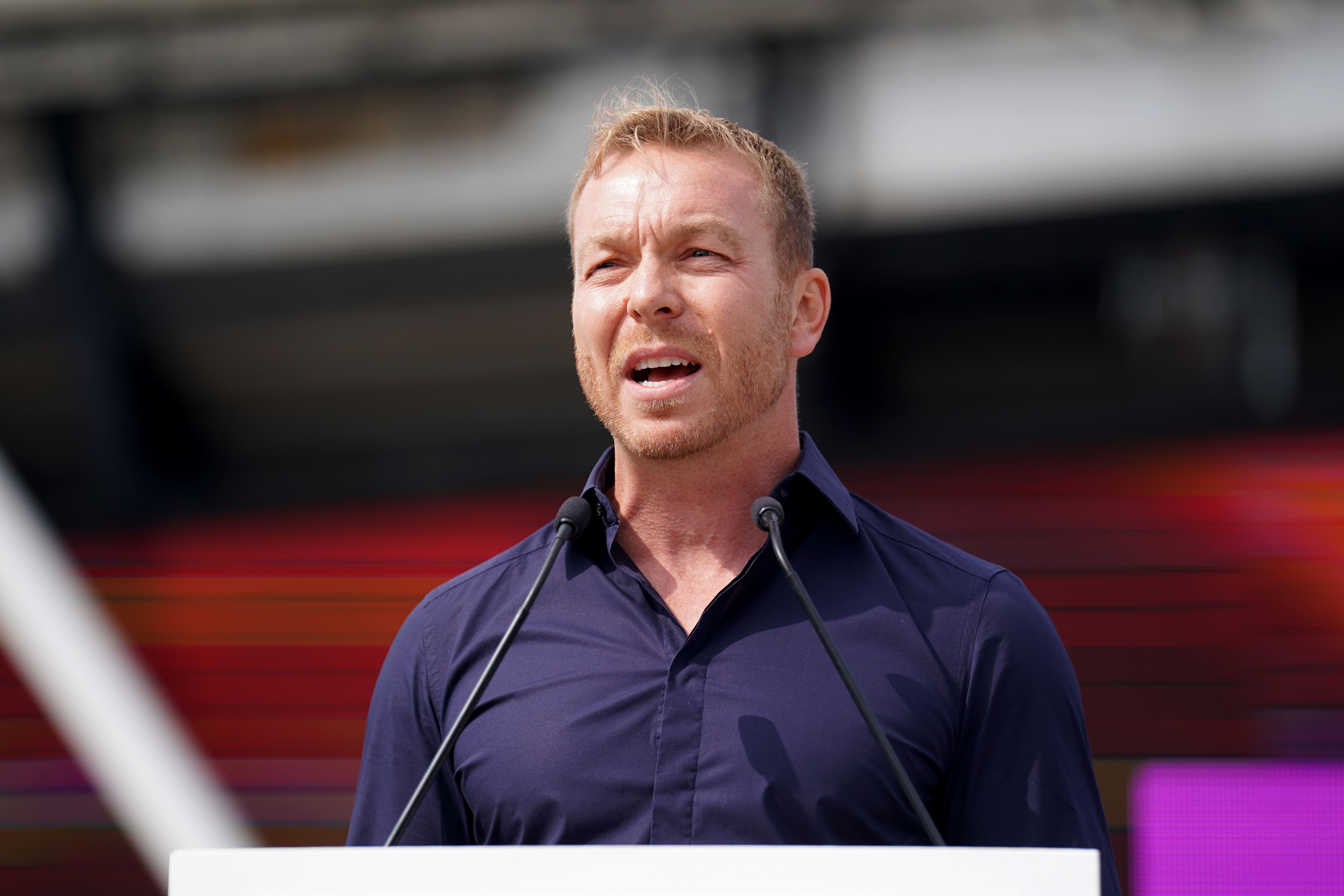Chris Hoy hailed for ‘courage’ in speaking about terminal cancer diagnosis
Professor Alan McNeill, a doctor who founded the charity Prostate Scotland, said the cycling star would ‘undoubtedly’ help raise awareness.

Your support helps us to tell the story
From reproductive rights to climate change to Big Tech, The Independent is on the ground when the story is developing. Whether it's investigating the financials of Elon Musk's pro-Trump PAC or producing our latest documentary, 'The A Word', which shines a light on the American women fighting for reproductive rights, we know how important it is to parse out the facts from the messaging.
At such a critical moment in US history, we need reporters on the ground. Your donation allows us to keep sending journalists to speak to both sides of the story.
The Independent is trusted by Americans across the entire political spectrum. And unlike many other quality news outlets, we choose not to lock Americans out of our reporting and analysis with paywalls. We believe quality journalism should be available to everyone, paid for by those who can afford it.
Your support makes all the difference.Cycling star Sir Chris Hoy has been praised for his courage in speaking out about his terminal prostate cancer diagnosis, by a doctor who has spent almost two decades trying to raise awareness of the disease.
Professor Alan McNeill founded the charity Prostate Scotland 18 years ago after his wife’s father and grandfather both died with the disease.
He said Sir Chris, a six times Olympic gold medal winner, would “undoubtedly” have an impact by speaking out.
His comments came after the Edinburgh-born athlete revealed recently that he had been told last year that he has two to four years left to live.
Prof McNeill, a consultant urological surgeon at NHS Lothian, told the PA Scotland news agency: “He is to be commended for his courage in sharing this, because many people would want to keep it private.
“What he has done, I presume he has done specifically to try to help others, so I think he has to be admired and thanked for his courage in doing that, because he has a young family and it is not easy.
“But in doing so there is no question that it has raised the issue up the agenda.”
Sir Chris’s diagnosis came after his father and grandfather were both diagnosed with the disease, with Prof McNeill urging other men with a family history of prostate cancer to get tested in a bid to catch any cases early.
He said: “If Chris Hoy can spare others with a similar family history then he will have done a great thing, another great thing.”
Stressing that “early prostate cancer is curable in the majority of men”, the expert said that men with a family history of the disease, along with those with “racial predisposition”, such as Afro-Caribbean men, could be classed as “high risk of prostate cancer”.
It is the most common cancer in men and increasing in incidence.
While men are entitled to ask their doctor for a prostate-specific antigen (PSA) test from the age of 50, Prof McNeill suggested they get checked earlier.
With early stage prostate cancer often not displaying any symptoms, he advised Afro-Caribbean men to get tested when they are 45, adding that those with a family history should have the check a decade earlier than the age their relative was when diagnosed.
Prof McNeill said: “If their father had prostate cancer aged 60, I will say to the man ‘go get your PSA at 50, if your dad was 55 go when you are 45’.”
He said “at least” 3,400 men in Scotland are diagnosed with the disease each year – the equivalent of more than nine a day
“It is the most common cancer in men and increasing in incidence,” the doctor said.
But he added that “nearly every week” he and his colleagues see men in their 50s or early 60s suffering from advanced prostate cancer, and added: “After 18 years of trying to raise awareness with Prostate Scotland, it is obvious we still have work to do. Because for me, every single one of these men in one too many.
“If we can get men early, when the cancer is still within the prostate, and they have curative treatment, I am not a health economist but I would have thought not only will ultimately their quality of life be better in the long term, but the cost to the system will be reduced over the long term.
“Because you will come in, have your treatment, and you’re done. Whereas with the more advanced disease there are lots of drug treatments, and probably more blood tests, more follow-up, more scans. So with advanced disease, if we can reduce the incidence it will potentially benefit the health service, ultimately.”